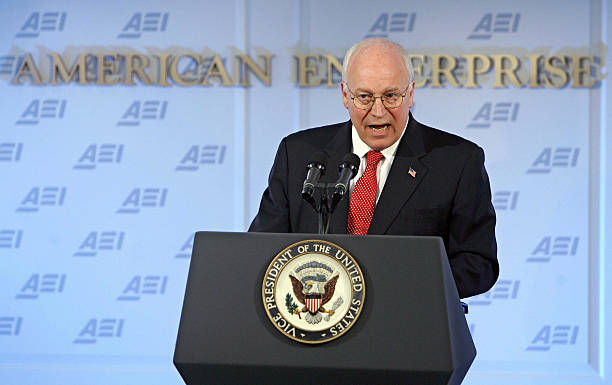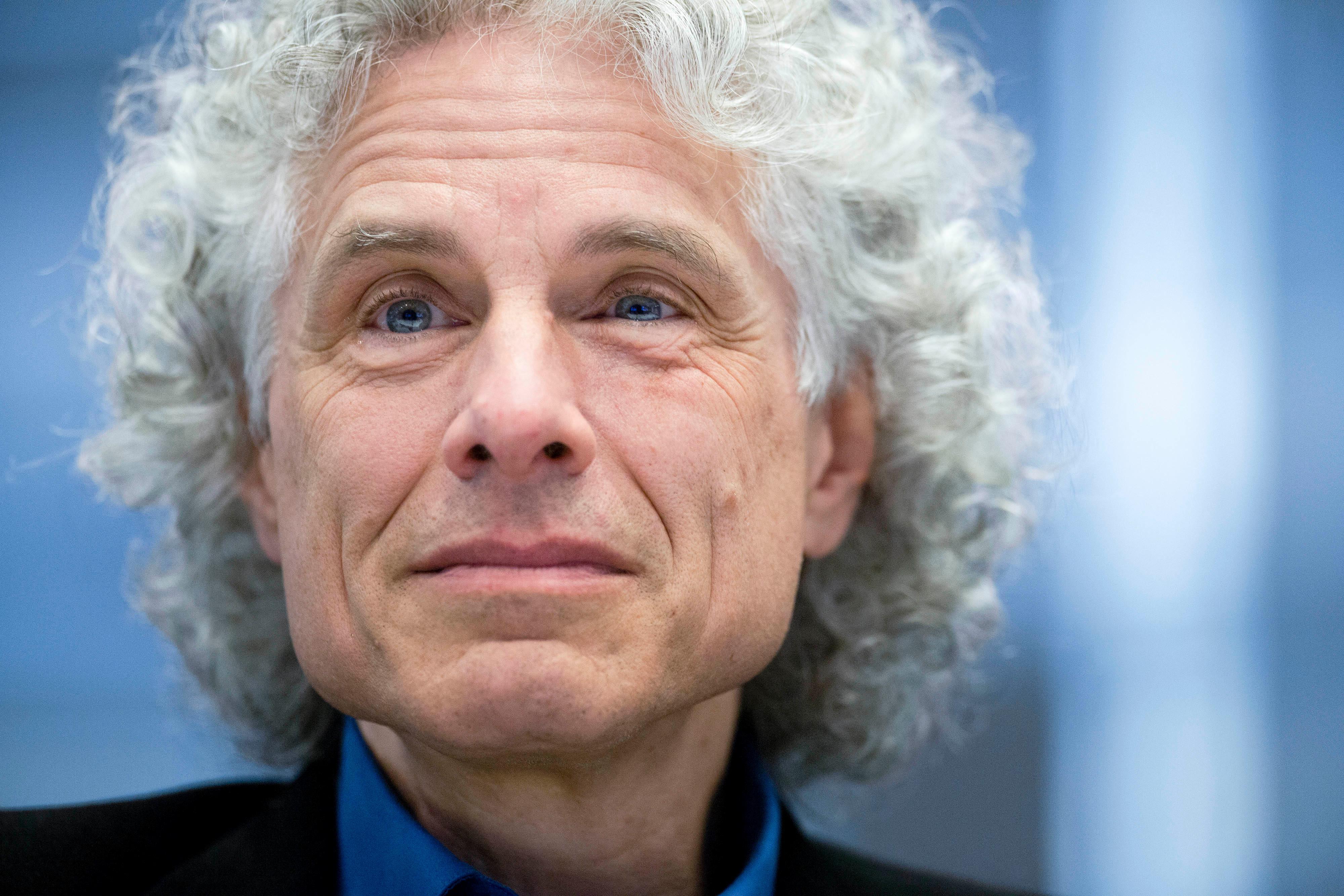
"The state incurs those well-known debts for politics, wars, and other higher causes and 'progress,' thus mortgaging future production with the claim that it was in part providing for it. The assumption is that the future will honor this relationship in perpetuity. The state has learned from the merchants and industrialists how to exploit credit; it defies the nation ever to let it go bankrupt. Alongside all swindlers the state now stands there as swindler-in-chief." Jacob Burkhardt
Since the 1980s, when Ronald Reagan was ushered into office against the far more experienced plutocrat, George H.W. Bush, the band of elites known as the neoconservatives have been increasingly influential. Few in number but not in power, this group of intellectuals originally formed on college campuses, mostly in the northeast, where many—and most notably the godfather of neoconservatism, Irving Kristol—were outspoken Trotskyists. Once Leon Trotsky had been murdered by Joseph Stalin, these thinkers abandoned any appreciation for the Soviet Union and rightly recognized it as the oppressive, totalitarian entity that most other anticommunists had long known it to be. Still, the urge to spread global revolution never went away. Only instead of Trotsky’s version of world Communist revolution, the neocons would transmogrify a lust for world “democracy” and laissez-faire capitalism into a new revolutionary urge.
Taking the Trotsky Out of Trotskyism
"No matter what the Jonah Goldbergs and Max Boots of the world may think of themselves, the truth is that they are being used to protect the corporate bottom line, not to better humanity."
As the twentieth century wore on and the Cold War continued, many of the neocons found themselves questioning more of their ingrained political assumptions. Concerned over the growing impulse for appeasement among the Democratic Party, by the time the Vietnam War was underway and the New Left was tearing through American streets, protesting and demanding a socialist revolution, Kristol and his fellow neocons were “mugged by reality.” They left the Democratic Party and joined the Republican Party (though some stayed behind and continued to enjoy influence on the Left, with the result that the Democratic Party went from championing socialist revolution in the 1960s to embracing neoliberalism by the 1990s).
Yet, within the dominant Republican Party establishment of the late 1960s and 1970s, the neocons were very much insurgents, working to displace the old guard. While older conservatives tended toward either foreign policy realism (a lá Henry Kissinger and Richard Nixon) or outright isolationism of the sort that the Right believed in before the Second World War, the neocons were interventionists of the first order. To be sure, the Right had always had a set of hawks influencing its foreign policy preferences. But never had those hawks been willing to use military force as rampantly as the neoconservatives strove to do. After all, such militarism was utterly averse to the national interest.
Here, then, is the key difference between the rising neoconservatives and the older conservatives they ultimately displaced: the neocons advocated for a moral component to American foreign policy. Of course, this new, secular morality was bound to the interests of the neoconservatives themselves. Yes, neocons are true believers in their self-imposed messianic mission to liberate oppressed peoples everywhere. No, their aims are not entirely altruistic.
The neoconservative persuasion was always the providence of a specific group of elites. Most Americans—particularly ordinary conservatives—had no desire to see their country embroiled in a multitude of wars simply to satisfy the secular moralizers of neoconservatism. So, how did Ronald Reagan, a man from the West Coast who, like the current president, had campaigned on a message of wanting to “Make America Great Again,” end up handing over the reins of America’s foreign policy to such a small group of detached elites?
As Nixon infamously admonished his advisers, “follow the money!”
It’s All About the Benjamins
Almost from the start, the neoconservatives understood that theirs was an ideology that lacked popular support—always a dangerous thing in a representative democracy predicated on popular government and the consent of the ruled. To compensate for the lack of popular support, the neocons ingratiated themselves with the right power players in Washington, D.C. They also branched out and became what Gerda Ray, a neo-Marxist analyst, described in 1983 as “subalterns” of the corporate elite. In fact, Irving Kristol himself had by the 1970s become a noted influencer in financial circles: he was known as a man who could wheel-and-deal any grant, any corporate leader, or any non-profit into supporting the cause of neoconservatism. After a decade of operating this way, the neocons figured out a way to end-run the popular will of the American people—especially when it came to matters of foreign and economic policy.
What is more, the neocons were skilled at piggybacking their cause onto larger movements. Thus, they attached themselves to the rising Moral Majority that catapulted Reagan into office, much like a remora attaches itself to the underbelly of a shark. Neoconservatism was augmented by its support for the mostly-Evangelical Christian reawakening that was sweeping the United States at the time. Of course, neoconservatism was also a cultural movement that intended to force America to return to the traditional values that had held sway before the tumultuous 1960s. So, the alliance with the Christian Right made sense and, more importantly, it ensured that the neoconservatives would have sway in the Reagan Administration.
Gerda Ray argued that “The Neoconservatives present the more dangerous challenge in defining their worldview as the moderate ‘middle’ between the extremes of both Left and Right.” She also held that “The Neoconservatives are likely to prove a more enduring manifestation of the Right…because they operate not as a political interest group, but as ideologues within a variety of institutions.”
The globalist predilections of the neoconservative movement, coupled with their decades-worth of deep social and political ties with America’s elite, meant that money would soon flow forthrightly into the coffers of the neocons from America’s major multinational corporations. Further, the strength of the neoconservatives was not only that they themselves emanated from elite circles and, therefore, already had an entry point into the postwar American elite; they also had a series of research organizations—think tanks such as the American Enterprise Institute— which received major corporate funding.
And why would corporations want to fund neoconservative think tanks?
Well, because the research these think tanks generated would be disseminated to the highest levels of government. In turn, American policies would be tailored to better comport with the designs of the neoconservatives—which almost universally benefited the major corporations that funded the neoconservatives. You see, when a corporation reaches a certain size, it requires easy access to foreign markets in order to ensure its profit margin remains lucrative. The rise of neoconservatism coincided nicely with the rise of what’s known as “Shareholder Capitalism.” In other words, the major corporations, having no regard for the fate of America’s future, became centrally focused on delivering massive returns to their shareholders at the end of every quarter.
Thus, free trade and open borders became an essential element of ensuring the profitability of such enterprises. Since the neoconservatives (as well as their neoliberal friends in the Democratic Party) were the most vocal champions of such policies, it was natural for major companies to support them.
Turbo-Capitalism Meets Rampant Militarism
With the interests of large, multinational corporations being realized at the expense of most other groups, the United States came to resemble a glorified Third World country. Capitalism in the country had become turbocharged in the apt formulation of Edward N. Luttwak. Free trade and open borders had laid low the blue-collar manufacturing base by exporting jobs and opportunities to developing countries. Meanwhile, the social fabric of most working-class communities was ripped to shreds, for no group in Washington was concerned about the plight of Americans who were once the backbone of the country. To compound matters, the neocons were preeminent hawks who, as noted earlier, possessed delusions of crafting a global American imperium—using the blood and treasure of those ordinary Americans who had suffered the effects of turbo-capitalism.
Militarism, too, suited most of the neoconservatives’ corporate backers.
After all, when American corporations could not gain access to the markets abroad that they desired, an injudicious use of American military power could afford entry into such contested markets. The United Fruit Company infamously benefited from such behavior, as did American sugar companies in Cuba after the United States invaded the country in the Spanish-American War. Needless to say, these are cynical relationships, meant only to satisfy the ends of America’s elites.
The neoconservative grip on power has weakened since the dark days of the George W. Bush Administration, when the country was pushed into the Iraq War, a disaster that resulted in $1.4 trillion wasted, thousands of American lives lost (with countless more Iraqis killed); the entire political order (such as it was) of the Middle East torn asunder, thereby promoting the very radical elements of Muslim society that the United States went to war to defeat. The Iraq War also led to the birth of ISIS, the collapse of neighboring Syria, and the resurgence of both Russian and Iranian power in the region. Finally, it created the massive refugee crisis now afflicting Europe, as vast numbers of people flee from the region en masse and move north and west.
For all that, the neoconservatives have not completely lost their grasp on power in Washington. And now, with the rise of “the Resistance” to Donald Trump’s presidency, the neoconservatives are joining their neoliberal brethren in the Democratic Party. It seems rather strange, certainly, that adherents to an ideology such as neoconservatism—formed as it was in opposition to the rabid socialism of the American Left—would make common cause with them. But then, given the limited ability to influence public opinion, it is understandable that Right-leaning elites who yearn for democratic globalism would make an alliance with Left-leaning elites who possess similar globalist predilections.
Ultimately, the neoconservative movement is an outgrowth of mid-twentieth century corporate politics. Theirs is a small faction that has had extraordinary influence, simply because major corporations have sought to influence government policies in ways that would benefit their companies and their industries. It is no surprise that the American Enterprise Institute, the leading proponent of the Iraq War among think tanks, long enjoyed major financial backing from the oil company Exxon-Mobil.
Leading scholars with deep ties to interest groups that stood to benefit from the Iraq War, such as Richard Perle, were heavily involved with AEI. Nineteen other AEI scholars worked in the George W. Bush Administration. All were Iraq War proponents, though in 2008 there was a purge of the neoconservatives at AEI, when Michael Ledeen, Reuel Marc Gerecht, and Joshua Muravchik were removed from their positions. Two years later, David Frum was let go from his influential perch at the think tank. AEI would end up receiving money from the Koch Brothers, becoming reliable parrots of their globalist line on open borders and “free trade.”
While it is unlikely that the United States went to war in the Middle East merely for the sake of acquiring greater oil and natural gas rights there (that would have been preferable because at least the country would have gotten something tangible out of its negative experience in Iraq), it is more than likely that American oil companies (and other groups with much to gain from Mideast intervention) were seeking to influence government policy toward resource-rich parts of the world to be more proactive.
So, at bottom, rather than being the architects of a morally superior American foreign policy, which set aside the parochial concerns of the national interest in favor of the amorphous, morally satisfying mission of liberating the world from tyranny, neocons are nothing more than shills for big corporations. They are sellouts of the highest order and thus deserve nothing but our scorn.
Selling Out was Never so Easy
No matter what the Jonah Goldbergs and Max Boots of the world may think of themselves, the truth is that they are being used to protect the corporate bottom line, not to spread progress to humanity. That the neocons have been able to live such comfortable lives, receiving lavish compensation for offering the most imbecilic policies to American leaders—while having little actual skin in the game themselves—shows just how uniquely terrible neoconservatism is.
The rise of Donald Trump was a direct rebuke to the self-destructive, vainglorious, non-solutions that neoconservatism has forced upon the American people. We may never be able to reclaim what has been lost thanks to the excesses the neocons encouraged over the last 50 years. But we can start to recover—provided the Trump Administration and other, non-neoconservative groups push back hard against the influence of not only the neoconservatives but their corporate backers as well.
Therefore, a bipartisan effort to limit big money’s involvement (without completely ending it) in politics is key. Moreover, the elite’s reliance on think tanks must be discouraged. American leaders do not need so much “expert” advice from people who are profoundly self-interested and effectively owned, besides. Rather, our elected representatives should answer to their voters. Although some would deride my position as “populism,” I believe it is the very essence of patriotism. Indeed, as Alexis de Tocqueville observed, historically one of America’s greatest strengths has been its capacity for local self-governance. Since the 1950s and ’60s, this concept has been withered away by elite factions, namely by the neoconservatives, their corporate backers, and the politicians they own in Washington. It must stop if the republic is to be saved.
Pulling out of Syria is but the first step in nullifying the pernicious influence of the neoconservatives on our foreign policy. Next, the United States must tactfully withdrawal from Afghanistan, and instead focus only on preserving its national interests and defending itself from actual threats, such as those emanating from China and Iran. The least-preferred tool of the neocons—diplomacy—must also be used more effectively in this new age. Trump has already proven that it can be used, having successfully engaged Kim Jong-un of North Korea. He must next use diplomacy with Vladimir Putin of Russia.
Of course, the neoconservatives and neoliberals—the democratic globalists—who rule Washington refuse to let all this to happen. They cannot abide a weakening of the corporate-militarism that has come to define American politics, even if it means risking a major world war with nuclear-armed powers. Then again, it’s not their families and communities on the line.
Indeed, is it any wonder that so many elites in Silicon Valley, Washington, D.C., and New York City are obsessing about crafting innovative ways to survive some calamity (what one powerful hedgefunder refers to as “The Event”)? They have already spent millions of dollars to ensure that they and their immediate family and friends survive whatever disaster they think is on the horizon. Nor have they endeavored to use their vast resources to protect the majority of American. This, alas, is the same mindset that has pervaded American politics since the rise of neoconservatism.
Only time will tell whether the Trump reaction to neoconservatism will bear the policy fruits we hope for. At any rate, one thing is clear: Understanding the influence of big corporations on the neoconservative movement is essential if we are to combat it effectively.

